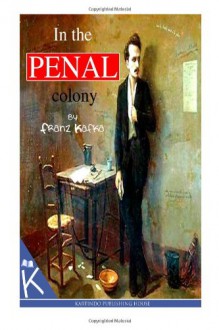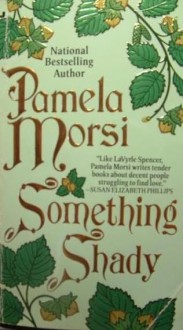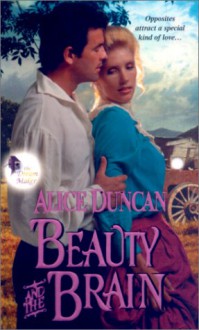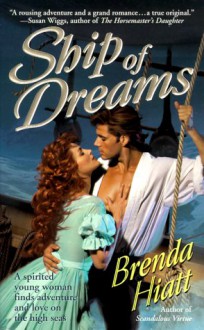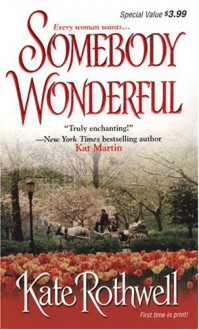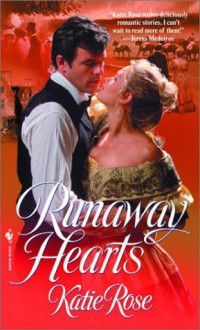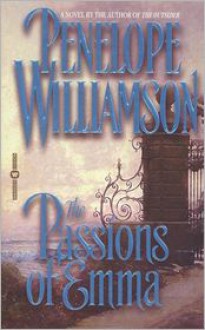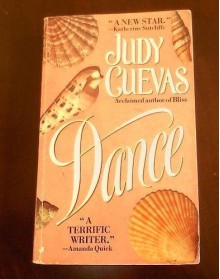
The short version of this review is: I loved Dance. Every. Freaking. Single. Word. The long version is going to be, well, long. Sorry. And, yes, there will be too many quotes and excessive squeeing. Again, sorry.
The back cover blurb is a bit lacking: dreams, blah, blah, longing, rekindling a flame, moment of passion, blah, blah, blah... Basically, Marie Du Gard and Sebastien De Saint Vallier had an encounter after she left Nardi at the altar, and Dance picks up three years later, in 1906, to deal with that history when Marie returns to France to ask her father to help finance a film studio.
I loved the setting of France in the early 20th century, a time of convergence of the 'unholy trinity' of Darwin, Freud, and Marx, when the Women's Suffrage Movement gained momentum. 1906 was the year in which Einstein introduced his Theory of Relativity, the Wright Brothers patented the airplane, the first Victor Victrola was made, and Pablo Picasso was winding up his 'Rose' period, on the cusp of Cubism. The motion picture industry was just a baby, short films, no sound.
I remember Marie Du Gard from Bliss as the 'well fed' 28-year-old daughter of Georges, with a slightly militant, bossy attitude, the 'expert in the mysteries and management of rules' (Bliss) whose guiding light was pleasing her parents, especially her Papa. To that end, Marie Du Gard was all 'a proper lady' should be, the young lady 'who played Chopin, who waltzed at soirees, who with her mother paid visits and sent out receiving cards that brought fine guests into the house every Tuesday afternoon.'
Georges, a wealthy industrialist, had his eye fixed on brushing off the bourgeois taint and gaining entree into French aristocracy by using Marie as that ticket into society. Because her worth to him is vested not in who and what she is or can do or become, but in how he can realize his dreams through her. She is just the ...vessel. Marie agrees to marry Nardi first and most importantly because he is her father's choice and because she believes she's unattractive, an idea reinforced by her parents. That's how she found herself engaged to marry one man while being infatuated with his brother, and utterly miserable. Also, boring. I think I have the T-shirt. Yawn...
Until she finds herself standing in a church on her wedding day, yelling 'Non! Non pas! Non! Je ne le veux pas!' (370, Bliss). How did she get to that point? I think it had a lot to do with Nardi's honesty with her and maybe this revelation as he notices she is slimmer late in Bliss and questions her reason (because her parents said to) for dropping about 20 pounds.
'Be leery of those who would invest themselves in you without limits. They will expect limitless return. The trade can even become, Do as I say, as I want. Live your life for me, since I live my life for you.' (Bliss, 362)
Marie Du Gard doesn't walk, she runs from the chapel, the 'echo of a woman's high-heeled shoes on the stone flooring of a cavernous-ceilinged chapel' her battle hymn, 'her wedding gown wadded up in her fists, her veil still over her face, dashed through the middle of the people.' (370, Bliss). She keeps running, till she reaches an old Roman wine cave on the grounds of the chateau where Sebastien finds her.
Marie is 'like a cornered animal', 'bristling with fight', 'smelling of honeysuckle', her wedding dress covered in pollen, and, telling Sebastien she's done living her life by 'absolutes that don't exist.' They are frozen for a moment, appearing poised and posed to dance, there in the wine cave with rain pouring down outside, his hand on her shoulder, then her waist, her hands reaching behind her to free herself.
What happens in the cave, stays in the cave for both of them for three years. The conflagration at the chateau, Georges Du Gard's life-threatening injuries caused by his cigar too close to Nardi's secret stash of ether, Georges' subsequent withdrawal of his affection for Marie, Sebastien's silence after 'seducing, no, ravishing Marie Du Gard' in the cave, and the death of Marie's mother a short time later reinforces Marie's epiphany that since she cannot please her father, or Sebastien, or her mother, she might as well please herself. So she takes flight again, this time across the ocean, as far her small inheritance will take her and she discovers living life for herself is intoxicating stuff.
'It had taken Marie a trip across the ocean to realize what she loved, however, was the plinkety-plink syncopation of honky-tonk ragtime, preferably with a nice contrapuntal. (...) When she had first heard this music in America, it had made something flutter in her chest, not unlike her soul taking wing. Loving it had been the beginning of her discovering who she was, American ragtime becoming a kind of anthem in her dedication to be free of her father's dreams for her.' (60-61)
The second thing Marie fell in love with came as she played 'piano for some nickelodeons.'
'The projectionist at one of them and I borrowed the cinematograph one night after the showings and ran our own film through it. For the projectionist, it was a lark. For me, I was spellbound by my own images up there on the screen in the dark. I bought a machine from the Edison Company then learned most of what I know doing scientific work - filming experiments, you know: the comparative respiration of humans and animals for a university, the heartbeats of a dog during vivisection, the different facial expressions of the mad, that sort of thing.' (184)
Marie discovers one of her passions is putting 'her own parade of flickering images, some sweet, some snarling' on film, images 'leaping from her soul', but more importantly, she uncovers who she is and what she wants.
'In America, she discovered her ability and desire to know her own passions, wild or tame, good, bad, or indifferent, without considering what others wanted for her.' (214)
Marie enjoyed limited success the last year in America making a series of films centered the comical escapades of a heroine named Nelly Brin, who's always engaged to marry but never quite makes it to the altar. Hmmm.. . Despite Marie's success with her films, she lost her shirt in the distribution rights to the films, a hard lesson she won't let happen again. She returns to Paris, $2,000 in debt, hoping her father will back her fledgling film company, and, above all, seeking a reconciliation with Georges, one with joyous notes of respect and affection, her father seeing her for who she is, acknowledging clearly her success, a celebration and affirmation of who Marie is. Because even thousands of miles away, her 'father's displeasure was palpable, like a boulder lowered onto her back.'
Three years living life on her terms have wrought big changes: physically, emotionally, intellectually. She's lighter physically, moving with a 'languorous undulation of hips' over skirts short enough to show 'half a dozen buttons' worth of shoe', skirts more narrow in the fashion of an 'emancipated' women along with a broad-brimmed hat favored by suffragettes. This Marie, who had taken her first breath of independence at the Chateau D'Aubrignon when she declared 'Non!' had embraced equality in that cave with Sebastien, the 'first large gift she had ever given herself without the permission of others.' She has laid claim to a part of her life that will never be ceded to anyone ever again.
I hated that Georges tries to infantilize Marie, calling her his defiant daughter, scolding her by calling her 'Marie-Nicole' not Nicolette; reducing her dreams, ambition and success as just her 'little crazy rebellion', an 'entirely preposterous' and 'cockamamie, faddish scheme about as durable and reputable as a sideshow at a circus.' Men make money in the motion picture business, he says, and though she's intelligent 'for a woman' she's 'not pretty enough to be an actress.' To her father, she's nothing more than 'a foolish, ungrateful old maid who has no right to demand anything of [him].' When he challenges her ability to 'change' the world, she counters by saying she can 'affect' it.
I loved that she gave as good as she got in this battle of wills. Georges' manipulations, insults, intimidations and even the withdrawal of his affection and shockingly disowning her, reinforce Marie's resolve. She is the level-headed one, laying out her business plans like a general, while her father is reduced to flinging insults. Unlike three years ago, when Marie said 'Non!' then ran and hid, she's not going anywhere and she will not give in. She's carved out this piece of herself, and no one gets to take it away.
In America, Marie discovers a power within herself that had weight in a 'slightly provocative belief in herself' rather than in an ideal of feminine physical beauty or ladylike accomplishments. She, who had been powerless for so long, finds this heady 'sway over the opposite sex' a 'glorious thing', loves experimenting with it. Honestly, she's a bit of a 'vamp', leading her lovers in a dance that is a:
'...test of this new province of control being her new ability to keep a man in a state of exquisitely painful limbo, humming at a full sexual pitch like a reed vibrating in the clamp of a woodwind, yet held at bay indefinitely: the challenge being, How long could she sustain the note?' (72-73)
Marie admits to a bit of cruelty in this teasing dance, but forgives herself because 'she didn't always do this on purpose.' She engages in this dance quite deliberately with Sebastien but unintentionally with John Russell-Smith, a septuagenarian rakish American artist, who funds her film project (after her father disowns her), and the first man of imagination and renown to take her work seriously, who sees artistic vision in her flickering images even if his intentions are less than noble.
Dance has one of the best opening paragraphs I think I've ever read. Right away, I know I'm going to enjoy waltzing through Sebastien's psyche, peering into the dark corners, wondering what's behind Curtain No. 3.
'Sebastien knew Marie Du Gard slightly better than her father realized. Sebastien had slept with her once. It had been a fleeting, feverish encounter on a rainy August afternoon that had made no sense then and made even less now. He remembered that afternoon three years ago as a kind of blurred, hysterical dot on the continuum of his otherwise orderly life, a little moment that was easier to pretend had never happened than to explain in the context of his normally sound, exemplary conduct.' (3)
I remember three things about Sebastien De Saint Valliers from Bliss. First, he was almost as pompous and cruel to his ether-drinking, alcoholic artist brother, Nardi, as he was insulting to and dismissive of Hannah who eventually marries Nardi. Secondly, Sebastien had one goal in life: restore his family to their rightful heritage in the Chateau d'Aubrignon and renovate the chateau itself by any avenue available even if it means sacrificing your brother's happiness to do it. He even threatened Nardi with a mental competency trial when Nardi balked at the marriage. Lastly, Sebastien knew exactly how many women he'd had sex with (that would be eight) and counted his orgasms 'presumably to measure his total against some standard.' (293 Bliss) You know, if he can count 'em, well, there's probably not been nearly enough. I didn't like Bastien in Bliss; he was the villain, the manipulator-in-chief, not above lying, sabotaging, pushing Nardi into a marriage he did not want. That's it. All I remember of him.
But Sebastien in Dance is . . . delicious. How did I get from permanently scowling at Bastien to well, falling a little in love with him myself? I think it has a lot to do with execution. Characters and their banter in Cuevas/Ivory books are distinctive in that I always feel I really get to know them, what they like, hate, love, what scares them, what makes them cry, what turns them inside out and upside down. Her characters drive the story and the conflicts are seeded mostly in a battle of the self. Sebastien, more than Marie because she's already undergone a process of self-examination and has accepted/embraced the 'stranger' inside, confronts that part of himself he's kept locked away for forty-one years. Well, except when it escaped for a few minutes one rainy August afternoon three years ago with Marie Du Gard. I think if I went back and counted page time, Dance would be heavily weighted in Sebastien's point of view far more than Marie's. In this instance, Dance is more Sebastien's book than Marie. But it's equally important that it's Marie who is leading this dance, and Sebastien following.
Clothes make the man, as is said, and the way Judith Ivory/Judy Cuevas dresses her characters reveal a lot about their characters, how they interact with other characters, how they see themselves. Look at Submit's black silk dresses (Black Silk), Nardi's Alpaca coat (Bliss), Hannah's flashy way of dressing or 'blowsy' as Sebastien says (Bliss), Stuart Aysgarth's fur coat (Untie My Heart), and Marie's narrow cut shorter skirts (Dance). Sebastien, at the beginning of Dance, is never seen without a meticulously starched shirt, high collar, intricate cravat, vest, frock coat, perfectly creased trousers, buffed shoes, a monocle, tamed and brushed hair, neatly trimmed and waxed mustache and mouche. Modest. Graceful. Elegant. Neat. Proper. Buttoned up. Perfect. A walking talking advertisement for a wealthy, powerful gentleman of high birth who probably only has sex on a schedule. And he has this lovely geeky vibe. Lord, I love cerebral.
'Sebastien could absorb whatever new information he required - learn patterns, assimilate details, grasp abstractions - and all pretty much at Einstein's speed of light.' (185)
When Sebastien meets Marie at the train station upon her arrival in Paris, he is shocked that her skirt is short enough to show half a dozen shoe buttons, that she drives a motor car barefoot, that she smokes cigarettes. But he's also 'fascinated by her, down to every last abrasive, provocative - outlandish - idiosyncrasy.' He admires her strength, her 'physical vitality' and 'robust energy', noting that she shares the same confidence and drive as her father. All of which kind of pushes Sebastien's erotic buttons as much as her 'long, elegant toes, high arches, and narrow ankles.' Um, did I mention Sebastien may have a foot fetish? Um, yes. Well. Moving on. At their first meeting, Marie tantalizes Sebastien, and the effects linger long after she disappears for several months.
Sebastien tries to find Marie, and his failure sees the 'sleek elegant ship' of Sebastien's orderly existence hitting rough waters in spite of his increasing wealth, his social position, his expanding power and éclat. He's edgy, anxious for no reason, restless. Worse still, his hands have begun to shake so much that he swears off coffee. To no avail. He signs papers to become Georges Du Gard's heir, signaling the return of the chateau at d'Aubrignon to the De Saint Vallier family, and ennui settles in. Despite his disdain for the machines that disturb the peaceful streets and his shock at Marie driving one, he purchases a Rolls Royce Silver Ghost and a chauffeur. Sebastien, who thinks everything through before acting, gives in to strange impulses. He spots the car Marie drove, gives chase, and forces the driver (not knowing it's Russell-Smith and by now Marie's benefactor) to stop, followed by polite threats to calm the man down. He follows a woman (Dot, Russell-Smith's model) into a lingerie store because she's wearing a hat 'piled high with yellow roses' like the one Marie wore, only to be flirted with shamelessly by a stranger.
Circumstances, fate, a series of freakish coincidences (though Freud says there's no such thing as a coincidence), call it what you will, plunk Sebastien down at the manor house on the grounds of the chateau at D'Aubrignon with a broken leg at the mercy of his bohemian companions Russell-Smith and entourage, two very young art 'models' named Dot and Sally. Oh, and by the way, Marie. He just thought his world was topsy turvy before his enforced vacation amidst 'crazy people and the insanity of naked art and playful women,(...) smoky moving pictures and drunken arguments at dinner.'
Ah, yes. Dinner. In Sebastien's world, one dresses properly for dinner, and one converses about appropriate subjects. One does not allow three young women to bundle him into a dressing gown and slippers with only a night shirt underneath that keeps shockingly riding up over one's knees. One does not lean on those young women's shoulders and hop and lope to the table. And one does not engage in a debate over whether one had salacious ulterior motives for visiting the manor house, like wanting to 'bang Dot' because of a lewd sketch shared at one's gym. One was just being a 'good landlord' and 'sexual frustration' had nothing to do with one's shaky hands and one's malaise. But one is honest enough, privately, to admit to oneself of wanting to 'fug' the 'hysterical blurred dot' previously known as Marie until his eyes roll back in his head.
After that first unfortunate dinner, Sebastien needs tactile reassurance by things that comfort him, that gave him his identity before he fell down the rabbit hole - his monocle (not there), his shirt, vest, and coat (also not there). Sebastien is laid bare, as 'perfectly flayed, deboned, and devoured' as the chicken on his plate. Over the course of seven or eight weeks, his manner of dress becomes less and less 'proper', shedding more than mere clothing, becoming more relaxed, the inner man reflected in his outer trappings. Sebastien De Saint Vallier even engages in fisticuffs for the first time in his life, rolling around on a floor punching a man old enough to be his father. Sebastien never knew he had such propensity to do violence to another human being.
I was just a little amazed at the gradual transformation Sebastien undergoes over the course of his time at the manor house. Marie and Sebastien engage in a 'tease and run' dance, where she flirts and provokes and then pulls away. At first it is just an amusing little game, 'pure joy' for her with a little retribution mixed in for Sebastien stealing her father's respect and affection (as she sees it). But then she realizes she actually likes him.
He murmured, 'I think you have been playing with me, Marie.'
She surprised them both by saying, 'Yes. I'm sorry. I won't anymore. You're different.' She took a breath. 'I didn't realize I liked you so well still.' (189)
But it's just so complicated between them, and their little fandango continues. Marie has real issues with Sebastien and Georges' relationship, trying to reconcile why Sebastien has her father's affections and respect while he withholds those things from her, his daughter. She sees Sebastien as Georges' avatar, hates how her father models himself after Sebastien down to the monocle. In turn, Sebastien doesn't like Russ or Marie's relationship with Russ. Some of the issues are resolved when Sebastien searches for and finds Marie after confronting Russ. He has 'things to tell her, to ask her, things to say' that she won't give him a chance to say because she's always waltzing off. When he finds her in the old Roman wine cave, the scene of the crime three years ago, Marie is shocked by how different he looks:
'Sebastien looked less like himself than she had ever seen. His shirttail was hanging out. His trousers had tan and pink smears on them, paint or something. He wore no coat, no tie, not even a shirt collar. (...) she realized he was unshaven, no morning toilette; no hair oil, no wax on his moustache - it lay just a bit wild across his upper lip. He even had a dark spot on his cheek, dirt or - no, it was impossible - a bluish mark the color of a bruise right below his eye. The usually deep hollow at the bridge of his nose was slightly puffy.' (291-292)
I loved how Ms. Cuevas took the typical masculine/feminine traits associated with heroes and heroines of historical romance and switched them up. It's Sebastien who experiences a sexual awakening and freedom with Marie without so much as a sparkle from a glittery Magic Hoo-Hah and despite his vast experience with eight women. It's Sebastien whose modesty is affronted when Dot spies on him nude, who's embarrassed and uncomfortable saying 'penis' out loud to Marie. It's Marie who has a 'love 'em and leave 'em' reputation and Sebastien who yearns for 'forever.' It's Marie who hesitates about marriage, and who amps up the sexual tension. Sebastien is the one begging to be made an honest man while Marie says there's no hurry to marry. Marie is the one to open Sebastien's eyes that it's all right if he didn't love his wife because you cannot compel love, and she nips his ''I am a monster because I ravished you three years ago' song very definitively by telling him she liked it, that she was not scarred emotionally or otherwise.
I loved reading the author's note about how she found inspiration for Marie in a real person, a French film maker/director/producer named Alice Guy Blache, the first woman director and one of the first to make films that tell a story. Most of her films have been lost forever, but there's a kickstarter project to fund a documentary of her life and to locate as many of her films as still survive. You can see some of her work on YouTube including a really innovative coloring technique she did in film from 1905 titled 'L'Espagne.' Mme. Blache is a fascinating historical character, and a significant player in the early motion picture industry.
I bought Dance by Judy Cuevas (Judith Ivory) five years ago and paid almost $30 for a used copy. $30!! I had to work long and hard to justify/rationalize the cost of this book, but eventually I convinced myself to bite the bullet (in this case lighten up my wallet) by latching onto a couple of tired old cliches: 'You can't take it with you,' followed closely by 'It's only money.' (I went through a similar experience with its prequel, Bliss.) These were the last two books of Ms. Ivory's that I had not read so I decided to treat them like ...well, like I would a magnum of very expensive Dom Perignon, lovingly stored away for just the right moment. I think I believed if I held out long enough Judith Ivory's health problems would resolve, she would begin writing again, and then.... Well, then these would not be the last two books of hers that I had not read. But the plain unpalatable truth is this: If she hasn't written a book in ten years, she will probably never write another word as long as she lives. Which makes me incredibly sad. And the fact is she wrote these books to be read, re-read, enjoyed, pondered over, argued about, loved, or hated. So three weeks ago, I picked up Dance and began to read. Then I read it again. And again one last time. I hope you get the opportunity to read this wonderful book, too!
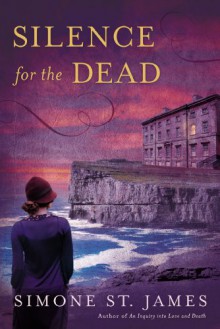

 Log in with Facebook
Log in with Facebook 

